![]()
![]()
Recommended Reading
from Bruce
Paul Krugman: "Immaculate Inflation Strikes Again (Wonkish)" (NY Times Blog)
Here are three questions about inflation, unemployment, and Fed policy. Some people may imagine that they're the same question, but they definitely aren't: 1. Does the Fed know how low the unemployment rate can go? 2. Should the Fed be tightening now, even though inflation is still low? 3. Is there any relationship between unemployment and inflation?
Garrison Keillor: Looking at snow, thinking of crocuses
As for me, I did my best to die young but survived and now, looking back, I find that my miserable youth is a dim memory, but I clearly recall several sterling plays I made on a ballfield, and the day I married my wife on 99th & Amsterdam in New York and walked to our wedding dinner on 86th, and the brilliant day I turned 70 aboard a ship in the middle of the Atlantic. Maybe it's true that the light dispels the darkness. Spring will be here before you know it. It is likely to come suddenly. Prepare to be enlightened.
Sam Wolfson: Here's a solution to Britain's gambling problem - nationalise the industry (The Guardian)
Attempts to regulate betting terminals are as futile as banning lard to fight obesity. Bringing bookmakers under government control would put profits back where they are truly needed
Marie Le Conte: Vive l'indifférence: why rude French waiters should be celebrated (The Guardian)
Who says restaurant staff, such as the Gallic waiter who was sacked for rudeness, must fawn over customers? They're there to serve you food, not be your best friend
Todd VanDerWerff: The Roseanne revival is incredibly honest about life in Trump's America (Vox)
Roseanne has always been about the big gap between the American dream and the American reality for too many people. When I cite the original series' "vague progressivism," I don't really mean that it had a coherent political framework so much as it believed in the idea that the American dream was too often hoarded by those who least needed access to it, who then parceled it out in little chunks to those further down the ladders of economic, racial, and social privilege. It called, week after week, not for revolution but for understanding that people like the Conners were out there and just trying their best.
John Patterson: From The Naked City to Double Indemnity - why the 1940s is my favourite film decade (The Guardian)
War changed everything, destroying whole film industries and heralding a new era of realism, grit and shoots on location.
David Bruce's Amazon Author Page
David Bruce's Smashwords Page
David Bruce's Blog
David Bruce's Lulu Storefront
David Bruce's Apple iBookstore
David Bruce has over 80 Kindle books on Amazon.com.
Presenting
Michael Egan
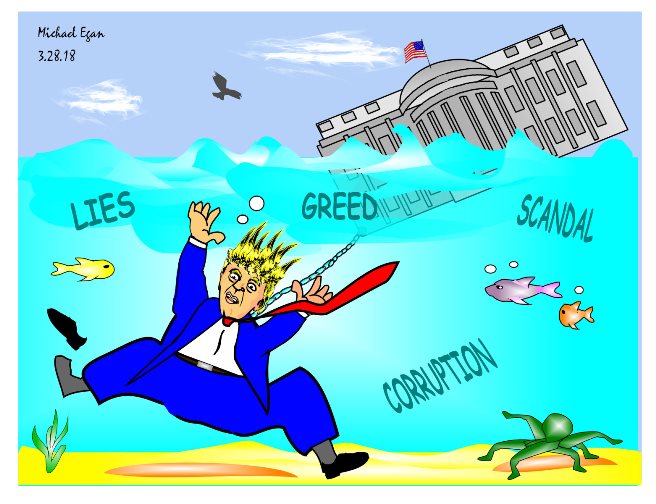


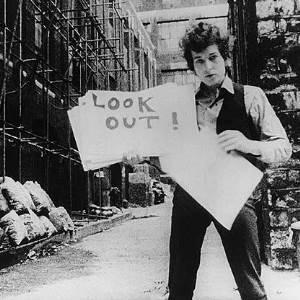
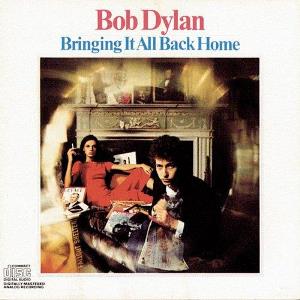
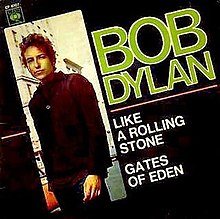
 responded:
responded:
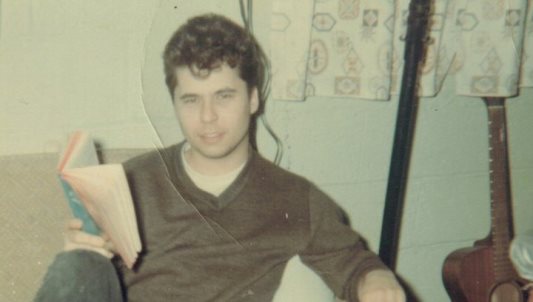
 In memory.
In memory.

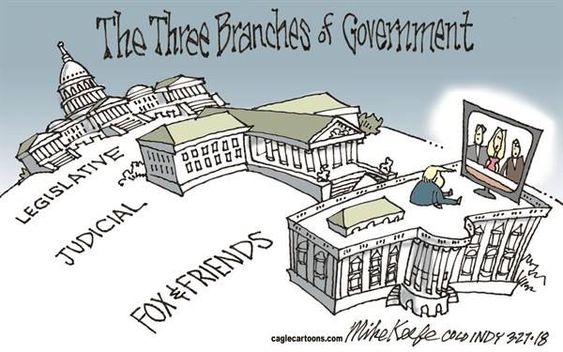
Reader Suggestion
Michelle in AZ
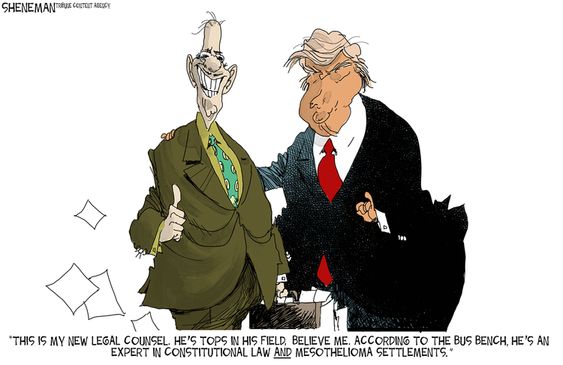
David E Suggests
ANXIETY
David
Thanks, Dave!
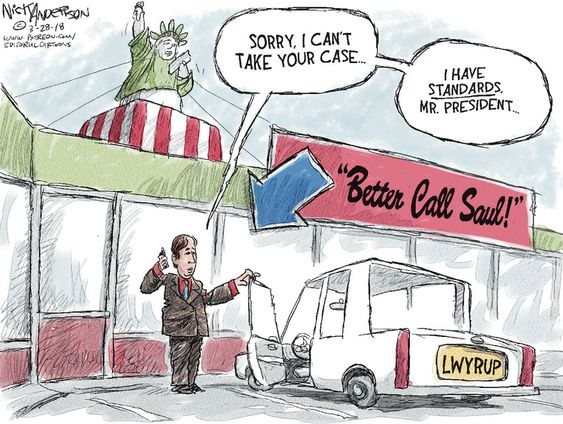
Bonus Links
Jeannie the Teed-Off Temp
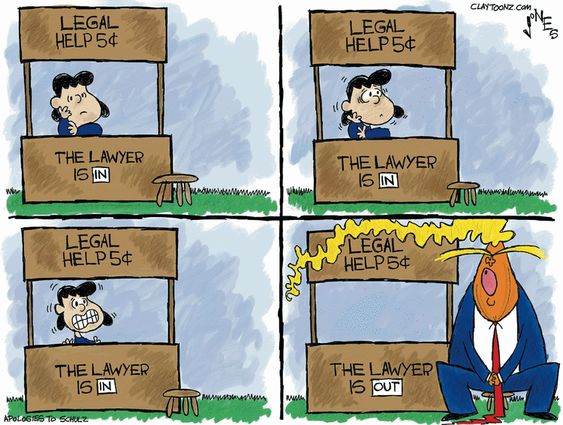
Reader Comment
Current Events
Everyone hates Ted Cruz
Childish, but so much fun; I would totally do it:
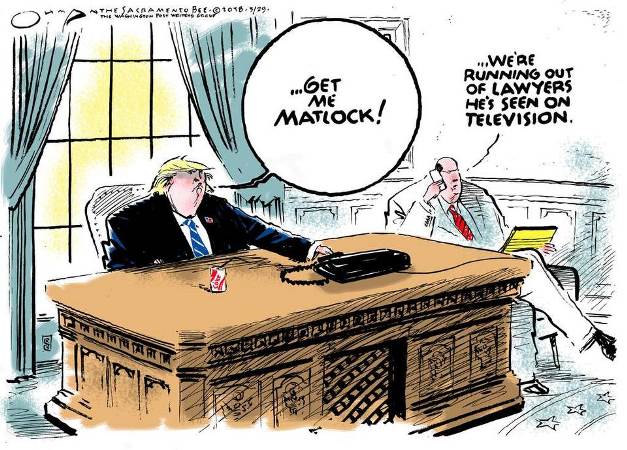
from Marc Perkel
Marc's Guide to Curing Cancer
So far so good on beating cancer for now. I'm doing fine. At the end of the month I'll be 16 months into an 8 month mean lifespan. And yesterday I went on a 7 mile hike and managed to keep up with the hiking group I was with. So, doing something right.
Still waiting for future test results and should see things headed in the right direction. I can say that it's not likely that anything dire happens in the short term so that means that I should have time to make several more attempts at this. So even if it doesn't work the first time there are a lot of variations to try. So if there's bad news it will help me pick the next radiation target.
I have written a "how to" guide for oncologists to perform the treatment that I got. I'm convinced that I'm definitely onto something and whether it works for me or not isn't the definitive test. I know if other people tried this that it would work for some of them, and if they improve it that it will work for a lot of them.
The guide is quite detailed and any doctor reading this can understand the procedure at every level. I also go into detail as to how it works, how I figured it out, and variations and improvements that could be tried to enhance it. I also introduce new ways to look at the problem. There is a lot of room for improvement and I think that doctors reading it will see what I'm talking about and want to build on it. And it's written so that if you're not a doctor you can still follow it. It also has a personal story revealing that I'm the class clown of cancer support group. I give great interviews and I look pretty hot in a lab coat.
So, feel free to read this and see what I'm talking about. But if any of you want to help then pass this around to both doctors and cancer patients. I need some media coverage. I'm looking for as many eyeballs as possible to read these ideas. Even if this isn't the solution, it's definitely on the right track. After all, I did hike 7 miles yesterday. And this hiking group wasn't moving slow. So if this isn't working then, why am I still here?
I also see curing cancer as more of an engineering problem that a medical problem. So if you are good at solving problems and most of what you know about medicine was watching the Dr. House MD TV show, then you're at the level I was at when I started. So anyone can jump in and be part of the solution.
Here is a link to my guide: Oncologists Guide to Curing Cancer using Abscopal Effect

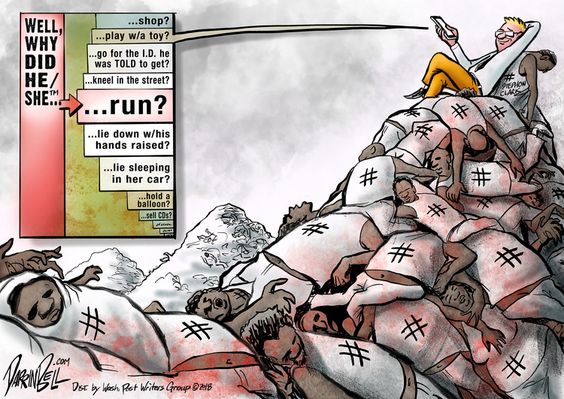

Selected Readings
from that Mad Cat, JD
"…THERE ARE NO DECENT REPUBLICANS."
WATCHING THE HAMMER FALL.
LET'S ROAST SOME PIGS!
THE BEGINNING OF THE END.

Visit JD's site - Kitty Litter Music
In The Chaos Household
Last Night
Both my former Pepperdine-roomie, Barbara the Pillar, and the always fabulous Doug Gauss, are celebrating another revolution around the sun today.
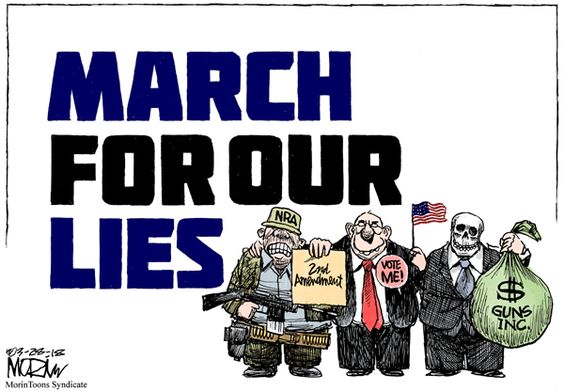
Plan Up In Smoke
Nipton, CA
Plans for a marijuana mecca in California could be going up in smoke.
Cannabis technology company American Green had purchased the ghost town of Nipton last year, with the goal of turning it into a pot paradise.
But now the company says it couldn't raise the necessary money and just sold the San Bernardino County town to an oil and gas company.
Although the town itself was sold, American Green is not entirely giving up on the project. The sale terms include a provision allowing the company to continue its efforts to turn the town into a cannabis-themed resort.
Nipton, CA
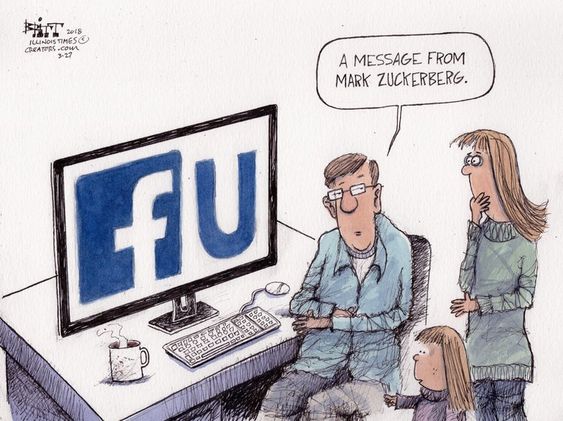
Galaxy Without Dark Matter
NGC1052-DF2
Stupefied astronomers on Wednesday unveiled the first and only known galaxy without dark matter, the invisible and poorly-understood substance thought to make up a quarter of the Universe.
The discovery could revise or even upend theories of how galaxies are formed, they reported in the journal Nature.
"This is really bizarre," said co-author Roberto Abraham, an astronomer at the University of Toronto. "For a galaxy this size, it should have 30 times as much dark matter as regular matter," he told AFP by phone. "What we found is that there is no dark matter at all."
"That shouldn't be possible," he added.
Some 65 million light-years from Earth, NGC1052-DF2 -- "DF2" for short -- is about the same size as our Milky Way, but has 100 to 1,000 times fewer stars.
NGC1052-DF2
Found Off Canada Coast
Human Footprints
Footprints of people who lived 13,000 years ago have been discovered off the west coast of Canada, which scientists say could belong to the first North American settlers.
Researchers from the Hakai Institute and the University of Victoria in Canada excavated sites along the shoreline of Calvert Island in British Columbia, where at the end of the last ice age the sea level was two to three metres lower than it is today.
The archaeologists discovered 29 human tracks in the sediment, which carbon dating showed to be 13,000 years old. Measurements and enhanced photographs helped them identify the footprints of three different people, thought to be of two adults and a child, walking barefoot.
The findings indicate humans were present on the west coast of British Columbia as the world emerged from the last ice age. They add to a growing body of evidence that people travelled along a coastal route to move from Asia to North America at the time.
Academics believe giant glaciers locked up much of the Earth's water during the last ice age, sinking sea levels so that a massive land bridge the size of Poland, called Beringia, connected the eastern tip of Russia to Alaska across what is now the 95km-wide stretch of sea called the Bering Strait.
Human Footprints
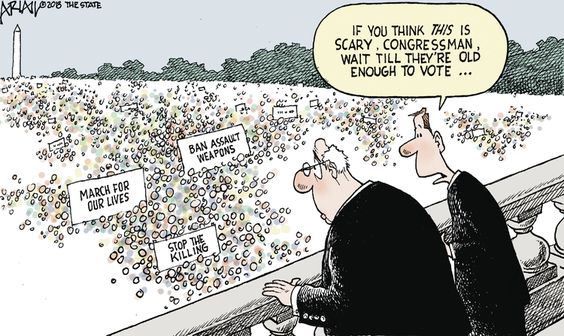
Independents Are Shifting
Climate Denial
In a sign the White House's hard-line stance against climate science may be shifting public debate, independent voters have grown more doubtful of scientists' warnings about climate change over the past year, according to a Gallup poll released Wednesday.
Between 2017 and 2018, the percentage of independents who understand greenhouse gas emissions cause climate change fell 8 percentage points to 62 percent, while the share of those who believe the effects of global warming have already begun dipped 7 points to 60 percent.
Sixty-five percent understand that most scientists believe global warming is occurring, down from 71 percent in 2017.
Fewer respondents said they worry a great deal or a fair amount about global warming, down 5 points from last year to 62 percent. But the 45 percent who said global warming poses a serious threat in their lifetimes stayed steady between 2017 and 2018.
Public opinion has seesawed slightly over the years, but the long-term trend is overwhelmingly toward the scientific consensus that climate change is real, man-made and dangerous. Gallup found that 66 percent of Americans understand that scientific evidence shows the Earth's temperatures rising, and 64 percent acknowledge that burning fossil fuels, deforestation and industrial farming are the cause.
Climate Denial
EPA Shows Workers How To Downplay
Climate Change
The Environmental Protection Agency on Tuesday evening sent employees a list of eight approved talking points on climate change from its Office of Public Affairs ? guidelines that promote a message of uncertainty about climate science and gloss over proposed cuts to key adaptation programs.
An internal email obtained by HuffPost - forwarded to employees by Joel Scheraga, a career staffer who served under President Barack Obama - directs communications directors and regional office public affairs directors to note that the EPA "promotes science that helps inform states, municipalities and tribes on how to plan for and respond to extreme events and environmental emergencies" and "works with state, local, and tribal government to improve infrastructure to protect against the consequences of climate change and natural disasters."
But beyond those benign statements acknowledging the threats climate change poses are talking points boiled down from the sort of climate misinformation EPA Administrator Scott Pruitt has long trumpeted.
"Human activity impacts our changing climate in some manner," one point reads. "The ability to measure with precision the degree and extent of that impact, and what to do about it, are subject to continuing debate and dialogue."
The other states: "While there has been extensive research and a host of published reports on climate change, clear gaps remain including our understanding of the role of human activity and what we can do about it."
Climate Change
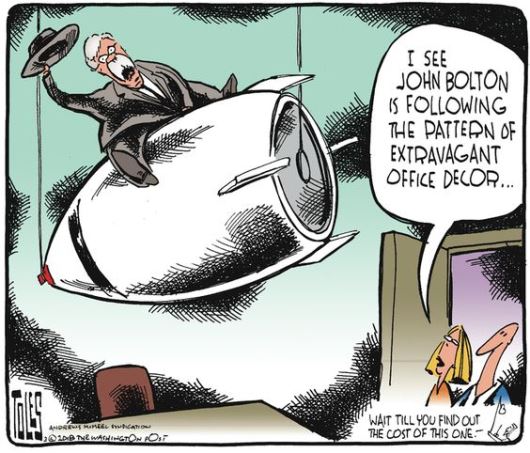
"Heavenly Palace" Plunging To Fiery End
Tiangong-1
An uncontrolled Chinese space station weighing at least seven tonnes is set to break up as it hurtles to Earth on or around April 1, the European Space Agency has forecast.
"It will mostly burn up due to the extreme heat generated by its high-speed passage through the atmosphere," it said in a statement.
Some debris from the Tiangong-1 -- or "Heavenly Palace" -- spacelab will likely fall into the ocean or somewhere on land, but the chances of human injury are vanishingly small, said Stijn Lemmens, an ESA space debris expert based in Darmstadt, Germany.
Lemmens calculated the odds of being struck by space debris at one in 1.2 trillion -- 10 million times less likely than getting hit by lightning.
Tiangong-1
Digs Even Deeper Hole
Little Ricky
Sentient mayonnaise blob Rick Santorum was back on CNN on Wednesday trying to walk back some controversial comments he made about the Parkland shooting survivor teens and still somehow wound up doubling down on his original comments.
Santorum faced backlash after, over the weekend, he said students taking part in the March For Our Lives would be better off "maybe taking CPR classes or trying to deal with situations that when there is a violent shooter that you can actually respond to that."
Speaking to CNN's Chris Cuomo on Wednesday, Santorum said, "I did misspeak in using the term CPR." But that was the extent to which Santorum made any sense.
After Cuomo called out Santorum and his ilk for "going after these kids, who are survivors, in the interest of political expediency," Santorum tried to wriggle free from everything he had previously said through several minutes of sparring with Cuomo. But he stood by his point that there were better ways for the students to help prevent school violence.
Little Ricky
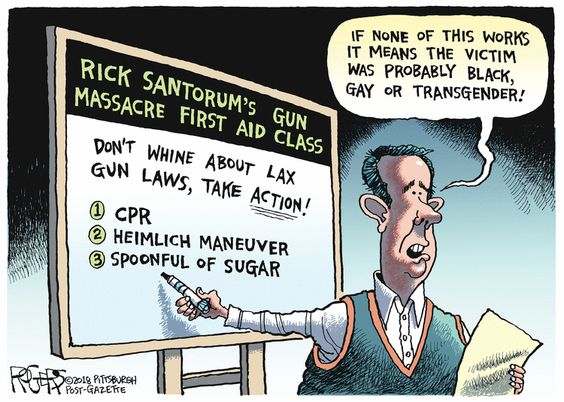
Sarah Says
Citizenship Question
White House press secretary Sarah Huckabee Sanders inaccurately argued on Tuesday (27 March) that a question added to the 2020 Census asking people if they are U.S. citizens has been used for decades and was only removed under the Obama administration.
"This is a question that's been included in every census since 1965, with the exception of 2010 when it was removed," Sanders told reporters.
"We've contained this question that provides data that is necessary for the Department of Justice to protect voters and specifically help us better comply with the Voting Rights Act," said the White House spokeswoman.
There was no census in 1965. The 1960 census asked people where they were born, but not about their citizenship. The questionnaire, sent out once a decade, gathers statistics on Americans that helps plan how tax money is spent and how many congressional seats each state gets.
The last time an official census asked if the people responding were U.S. citizens was in 1950. Some other surveys sent out by the U.S. Census Bureau, such as the American Community Survey, however, have asked the question.
Citizenship Question
Asking About Citizenship
The Census
On Monday night, Commerce Secretary Wilbur Ross announced that he is directing the Census Bureau to ask all respondents to the 2020 census to report their citizenship status. He made the decision over the strong objections of former census directors representing both Republican and Democratic administrations, 60 members of Congress, 161 Republican and Democratic mayors, 19 state attorneys general, more than 170 civil rights organizations, and prominent business leaders, among others, all of whom strongly advised against adding a citizenship question. The move raises serious concerns that the upcoming census will be a major failure, harming our democracy, communities and businesses and painting an inaccurate picture of America's population.
The U.S. Constitution requires the census, every 10 years, to count each and every individual in the country, regardless of age, race, gender, ethnicity or citizenship status.
Census professionals agree that a citizenship question will significantly reduce census participation, both by citizens and non-citizens. As former Census Bureau directors recently explained to the U.S. Supreme Court, adding the citizenship question will create a chilling effect on participation by raising privacy concerns and stoking the fears of undocumented individuals that their responses may be used against them. Census professionals currently employed at the bureau have already reported that a heightened environment of suspicion and fear is complicating their work in the field preparing for the census, even before a citizenship question has been added to their questionnaires. Under these circumstances, if the citizenship question remains, the resulting population counts that we all rely on will be wrong.
The census touches virtually every aspect of our lives, determining our political representation, shaping how federal resources are allocated, powering our businesses, driving decisions by schools and police departments, and informing medical research.
Under the Constitution, seats in the House of Representatives are divided among the states every 10 years based on the population count that the census generates. Seats in the Electoral College are allocated the same way. States also use census data to draw district lines for congressional and state legislative seats - a necessary process to make sure communities are fairly represented. Census data also guides the distribution of hundreds of billions of dollars in federal aid. It informs statistical publications that help business owners and local governments make key decisions on matters ranging from marketing and investment to the assignment of police beats. And it provides academic researchers, journalists, and others with invaluable demographic information.
The Census

| CURRENT MOON lunar phases |



